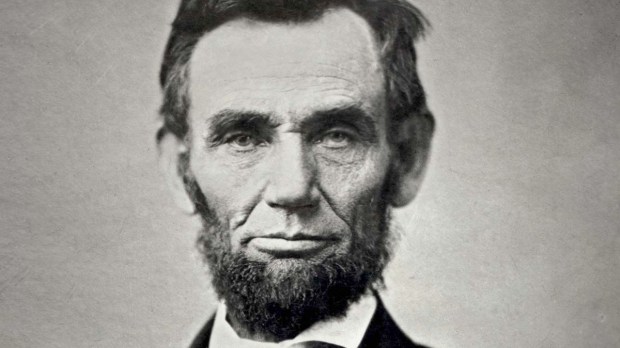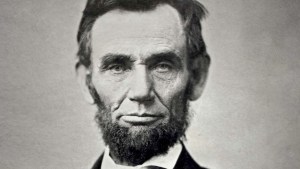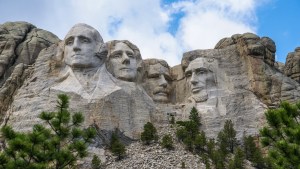When I recently traveled to visit historic sites from Abraham Lincoln’s life, I was utterly fascinated. I learned about his hardscrabble childhood, his amazing parenting style, his somewhat tumultuous marriage, and his bouts with depression.
I quickly realized I’m not the only person to be a little obsessed with Lincoln: Over 15,000 books have been written about him, more than any other person in world history — with the exception of Jesus Himself.
One of the most interesting things I learned was about Lincoln’s relationships with his neighbors.
It turns out that some of Lincoln’s near neighbors and probable friends were a Black family of activists, at least one of whom was a conductor on the Underground Railroad.
Lincoln’s neighborhood was incredibly diverse, much more so than you might expect for 1800s Springfield, Illinois. Large groups of Irish, German, and Portuguese immigrants brought a mix of languages and cultural traditions. And of the 203 African-Americans living in the city in 1860, many were homeowners.
Two of these free Black men were Jameson Jenkins and James Blanks. These men had married sisters, Elizabeth and Martha Ann Pelham (also rendered Pellum), and the two couples lived on the same property in two small houses with an adjoining wall.
It just so happens that their property was five lots away from the Lincolns. Evidence suggests a friendship between the Jenkins and Blanks family and the Lincolns.
Jameson Jenkins was a drayman, or wagon driver, who transported goods. Doesn’t that seem an ideal profession for secretly helping enslaved people flee bondage? Jenkins probably thought so too.
At least one news report from 1850 reveals that Jenkins successfully transported escaped enslaved people north to Bloomington, Illinois. But we can only imagine how many other people he assisted without catching the attention of the local news.
This particular incident became newsworthy because Jenkins allowed his own reputation to be dragged through the mud to ensure the enslaved people’s escape:
On January 17, 1850, Jenkins was involved in an incident that was reported in the local newspaper as a “slave stampede.” Jenkins is believed to have assisted a group of runaway slaves escape the hands of slave catchers, taking them north to Bloomington, Illinois.
In the days following the incident, town newspapers reported various and contradictory stories regarding the runaway slaves and their capture, some accounts suggesting that they were betrayed by Jenkins.
A later account revealed that, rather than betraying the runaway slaves, Jenkins had indeed assisted them, explaining that the contradictory stories were passed on deliberately so that the railroad car in which the freedom seekers and Jenkins had traveled on to Bloomington would not be discovered.
By his actions, Jenkins had risked his home, his livelihood, and his life to deliver freedom to those who had been enslaved.
We only know the barest facts about this incident, but it gives us an idea of the kind of man Jenkins was. His courage and quick wits must have made him an interesting person to get to know. Indeed, the historical record strongly suggests a friendship between him and Lincoln.
Jenkins was the last neighbor Lincoln spent time with before leaving Springfield to begin his presidency. In fact, it was Jenkins who gave the Lincoln family a ride to the train station.
The relationship between America’s 16th president and his neighbor Jameson Jenkins is interesting.
On February 11, 1861, President-Elect Abraham Lincoln departed his beloved Springfield to travel to the White House. On the morning of his departure, Lincoln reportedly relied on his neighbor, Jameson Jenkins, to provide him with a ride to the Great Western Depot where he delivered his famous Farewell Address to the citizens of Springfield.
This event demonstrated a relationship between Lincoln and Jenkins and raises speculation that the man known as the “Great Emancipator” may have known a conductor on the Underground Railroad. Both men, in different ways, helped enslaved people achieve freedom.
While we know Jenkins and Lincoln had some sort of relationship, we don’t know what friendship existed between Lincoln and Jenkins’ brother-in-law, James Blanks, although it’s reasonable to assume they were friendly acquaintances at least.
Like Jenkins, Blanks was also an advocate for freedom through activism:
James became a champion for African American education. In the 1850s, he helped organize a school fundraiser and joined a group of African Americans who believed education was “the only sure way to redeem ourselves from the bondage that we are now in.”
It’s fascinating to speculate about this family of courageous activists who lived just down the block from Abraham Lincoln. How close a friendship did they have?
We do know that Lincoln was close friends with an elderly woman, Jane Pelham (also rendered Pellum), who lived with the Blanks and Jenkins family. Since she shares the wives’ maiden last names, she was probably a relative of theirs. It’s possible that she was their mother, making Jenkins and Blanks her sons-in-law.
As an elderly woman with a gift for storytelling, Pelham possessed a veritable treasure trove of oral history, which fascinated a man as curious as Lincoln. She was born in 1787 in Virginia, so her memories dated back nearly to the time of the American Revolution. (Both she and Jenkins were born into slavery but were free by the time Lincoln knew them.)
We know that Lincoln called her “Aunt Jane” and loved to sit and talk with her, taking in the many stories she told so well, as this hilarious anecdote confirms:
“She lived down the street from the Lincolns and was a good friend of theirs, and the story is that one late afternoon, these people were sitting in their living room, and they heard all this loud talking outside,” Hart said.
“The lady of the house went to the front door and out on the porch and looked out, and she came back in, and she (said), ‘Oh, it’s just Abe Lincoln and Aunt Jane Pellum. You know she’s deaf, so he has to scream at her for her to hear him.’”
While we know that Lincoln was friends with Pelham and Jenkins, did he know that Jenkins was a conductor on the Underground Railroad?
We may never know, but I can’t stop wondering about the influence this incredible family had on our 16th president. When he brought about an end to slavery, did he think of his friends, Jameson Jenkins and Jane Pelham?



